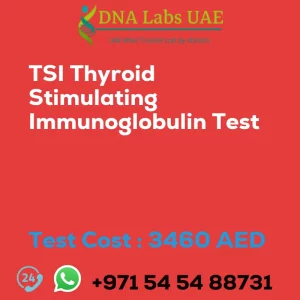HEPATITIS B VIRUS GENOTYPING DRUG RESISTANCE and QUANTITATIVE PCR Test
Test Name: HEPATITIS B VIRUS GENOTYPING DRUG RESISTANCE and QUANTITATIVE PCR Test
Components: 3 mL (2 mL min.) plasma from 2 Lavender Top (EDTA) tubes
Price: 3650.0 AED
Sample Condition: Separate plasma asceptically within 2 hours of collection. Ship refrigerated or frozen. 12 hours fasting is recommended
Report Delivery: Sample Daily by 11 am; Report 7 days
Method: Sequencing, Real Time PCR
Test Type: Disorders of Liver
Doctor: Gastroenterologist
Test Department: MOLECULAR DIAGNOSTICS
Pre Test Information: 12 hours fasting is recommended
Test Details:
Hepatitis B virus genotyping is a process used to determine the genetic variation of the virus. It involves analyzing the viral genome to identify specific variations or genotypes of the virus. This information can be useful in understanding the epidemiology of the virus and in guiding treatment decisions.
Drug resistance testing is performed to determine if the hepatitis B virus has developed resistance to antiviral drugs. This is important in guiding treatment decisions, as it helps to select the most effective antiviral therapy for the patient. Drug resistance testing involves analyzing specific regions of the viral genome that are known to be associated with drug resistance.
Quantitative PCR (Polymerase Chain Reaction) is a laboratory technique used to measure the amount of viral DNA or RNA in a sample. In the case of hepatitis B, quantitative PCR can be used to measure the viral load, which is the amount of hepatitis B virus present in the blood. This information is important in monitoring the progression of the infection and assessing the response to antiviral therapy.
Overall, hepatitis B virus genotyping, drug resistance testing, and quantitative PCR are important tools in the management of hepatitis B infection. They help in understanding the genetic variation of the virus, selecting appropriate antiviral therapy, and monitoring the effectiveness of treatment.
| Test Name | HEPATITIS B VIRUS GENOTYPING DRUG RESISTANCE and QUANTITATIVE PCR Test |
|---|---|
| Components | |
| Price | 3650.0 AED |
| Sample Condition | 3 mL (2 mL min.) plasma from 2 Lavender Top (EDTA) tubes. Separate plasma asceptically within 2 hours of collection. Ship refrigerated or frozen. 12 hours fasting is recommended |
| Report Delivery | Sample Daily by 11 am; Report 7 days |
| Method | Sequencing, Real Time PCR |
| Test type | Disorders of Liver |
| Doctor | Gastroenterologist |
| Test Department: | MOLECULAR DIAGNOSTICS |
| Pre Test Information | 12 hours fasting is recommended. |
| Test Details |
Hepatitis B virus genotyping is a process used to determine the genetic variation of the virus. It involves analyzing the viral genome to identify specific variations or genotypes of the virus. This information can be useful in understanding the epidemiology of the virus and in guiding treatment decisions. Drug resistance testing is performed to determine if the hepatitis B virus has developed resistance to antiviral drugs. This is important in guiding treatment decisions, as it helps to select the most effective antiviral therapy for the patient. Drug resistance testing involves analyzing specific regions of the viral genome that are known to be associated with drug resistance. Quantitative PCR (Polymerase Chain Reaction) is a laboratory technique used to measure the amount of viral DNA or RNA in a sample. In the case of hepatitis B, quantitative PCR can be used to measure the viral load, which is the amount of hepatitis B virus present in the blood. This information is important in monitoring the progression of the infection and assessing the response to antiviral therapy. Overall, hepatitis B virus genotyping, drug resistance testing, and quantitative PCR are important tools in the management of hepatitis B infection. They help in understanding the genetic variation of the virus, selecting appropriate antiviral therapy, and monitoring the effectiveness of treatment. |








